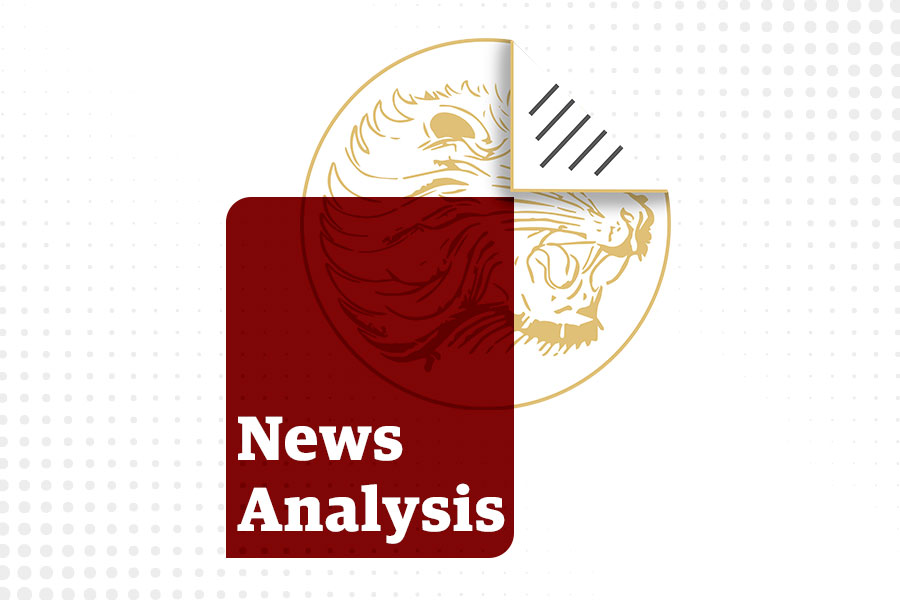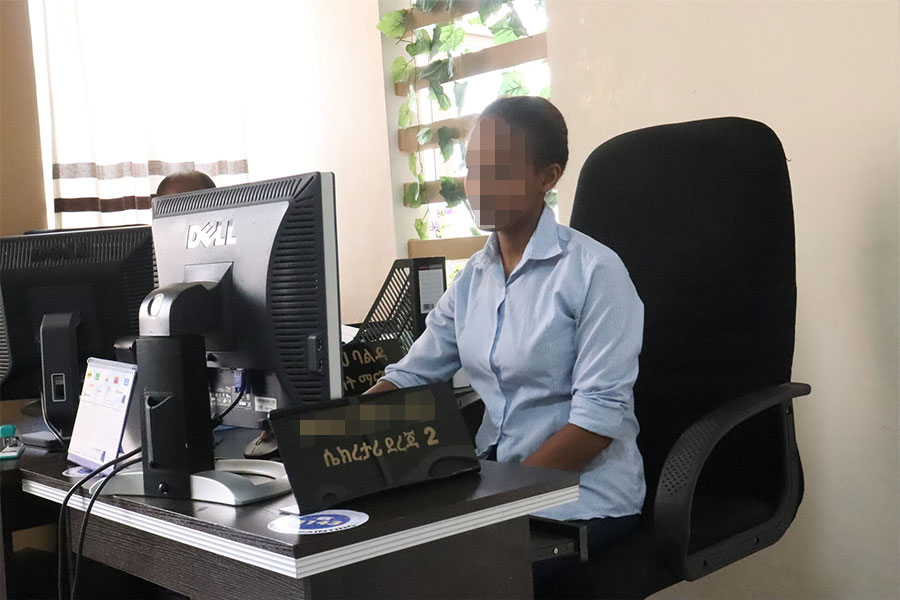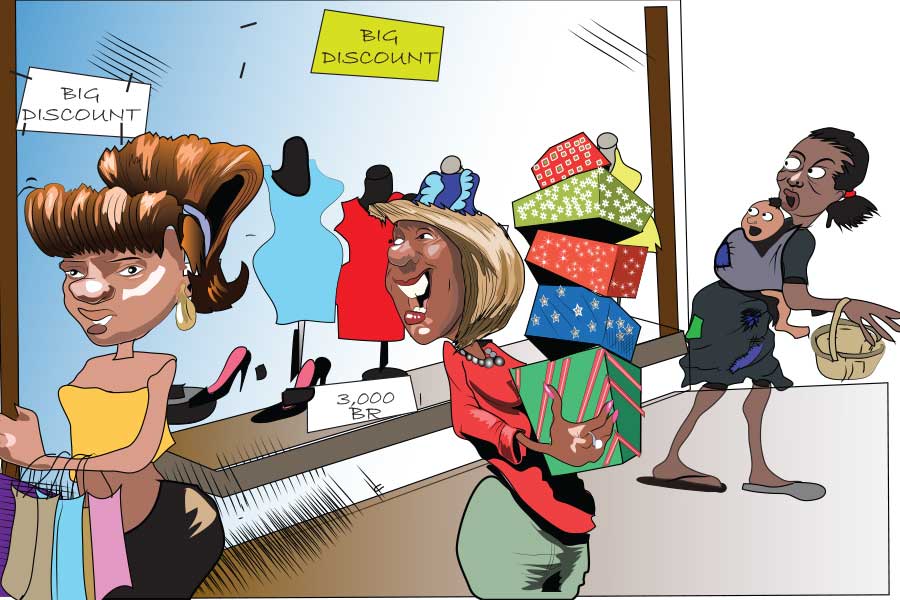
May 14 , 2022
By Kevin Watkins
The Bretton Woods system had created a powerful vehicle for mobilising finance on a global scale. But, rather than leveraging the system to help poor countries recover from COVID-19 and meet broader development goals, the rich world continues to court danger by playing it safe, writes Kevin Watkins, a former CEO of Save the Children UK.
When US Secretary of the Treasury Henry Morgenthau opened the Bretton Woods Conference almost 80 years ago, he reminded delegates that failures of international cooperation had led to the Great Depression, social division, and ultimately war.
“Prosperity, like peace, is indivisible,” he concluded. “We cannot afford to have it scattered here or there among the fortunate... Poverty, wherever it exists, is menacing to us all.”
That message speaks across the ages. We are again facing global challenges that can be met only through international cooperation. Large swaths of the developing world are being excluded from global prosperity. Extreme poverty is rising. Hard-won gains in health, education and nutrition are under threat. Already obscene economic inequalities between and within countries are widening. The window of opportunity for averting a climate catastrophe is about to slam shut. And yet multilateral cooperation is paralysed by complacency, petty rivalries and inward-looking nationalism.
Consider this year’s International Monetary Fund (IMF) and World Bank Spring Meetings, which offered an opportunity to mobilise the finance needed to prevent wholesale reversals of progress toward the 2030 Sustainable Development Goals (SDGs). Instead, Western governments and the G-20 arrived with no shared agenda, spent a week swapping platitudes, and left the world with a set of vague and incoherent declarations.
We cannot afford leadership failures on this scale. The IMF and the World Bank, the twin pillars of the Bretton Woods system, should be at the heart of international cooperation in responding to the defining challenges facing our generation, starting with the two-tier recovery from the economic downturn triggered by COVID-19.
Unlike advanced economies, which have recovered on the back of vast government financing and vaccination programmes, many developing economies have suffered deep scarring. Growth has slowed, tax revenues have fallen, and two-thirds of low-income countries are either in or at risk of debt distress. The IMF estimates that the poorest countries will need an additional 450 billion dollars to return to their pre-pandemic development trajectories.
Budget pressures are limiting governments’ capacity to defend human development gains. The pandemic pushed almost 100 million people into extreme poverty. That figure is set to rise as safety nets are cut and Russia’s war in Ukraine fuels food-price inflation, raising the spectre of increased malnutrition, or even famine, in some parts of the world. More than 40 of the poorest countries are spending more servicing their debts than on public health. Education budgets are being cut even as millions of the world’s most disadvantaged children return to classrooms carrying the learning losses inflicted during pandemic-related school closures.
Against this grim backdrop, international cooperation to finance an “SDG recovery” has gained new urgency. The OECD estimates that the already-large pre-pandemic SDG financing gap has increased by 1.2 trillion dollars. That is without the incremental investments of two trillion dollars annually needed to support renewable-energy investments in developing countries to achieve the 2015 Paris climate agreement’s goals.
When governments committed to the SDG agenda seven years ago, they pledged a bold new approach to development finance that would convert “billions into trillions”. The architects of the Bretton Woods system created the vehicle to do so in the form of multilateral development banks (MDBs).
Designed to support postwar European reconstruction, the MDB system, the World Bank and its regional counterparts, enshrines a simple but powerful financial model. With small amounts of paid-in capital underpinned by much larger government guarantees (“callable capital”), the MDBs can use their AAA credit ratings to issue bonds at low-interest rates and lend to developing countries, effectively mobilising private finance for public investment. The World Bank, the largest MDB, has only 19 billion dollars of paid-in capital, and 278 billion dollars of callable capital.
Multilateral finance has multiplier effects that bilateral aid cannot duplicate. Every dollar invested in the World Bank through paid-in capital mobilises four dollars in new finance. Yet the MDB system is at best weakly exploited. Apart from its soft-loan facility, the International Development Association, the World Bank system played a muted role in supporting developing countries during the pandemic, and the MDBs’ financing portfolio for climate interventions in low- and middle-income countries is just 38 billion dollars, a fraction of what is needed.
While the MDBs (notably the African Development Bank) are undercapitalised, the bigger problem is a deeply entrenched conservatism in financial governance. Major shareholders, the US and European governments, refuse to allow callable-capital guarantees to be integrated into lending operations. Researchers at the Overseas Development Institute estimate that changing this rule could mobilise an additional 1.3 trillion dollars, with only a marginal change in credit ratings and borrowing costs.
Speaking at the spring meetings, US Secretary of the Treasury Janet Yellen lamented the MDBs’ failure to mobilise the trillions needed for pandemic recovery. And yet the Biden administration has failed to overhaul the rules on callable capital.
Other attempts at innovation have run into a bureaucratic brick wall. Gordon Brown, the UN’s Special Envoy for Global Education, has proposed a system of modest grants and guarantees that could double MDB financing for education, unlocking 10 billion dollars. Yet even in the face of an unprecedented education crisis, donors have failed to act.
This is a travesty of the Bretton Woods system. In the misplaced defence of AAA credit ratings, the MDBs are eschewing solutions that would support recovery, prevent devastating reversals in human development, and bring hope to millions of children.
Sadly, it is not just the MDB agenda that is stuck. Nine months after G-20 governments pledged to allocate 100 billion dollars of the IMF’s new issuance of special drawing rights (SDRs, the Fund’s reserve asset) to poor countries, not a single cent has been transferred. Meanwhile, with debt servicing set to surge by 45pc this year, most of it going to commercial creditors and China, vital investments are being crowded out, and the risk of disorderly sovereign defaults is growing. Yet we are no closer to a comprehensive debt-reduction framework than we were a year ago.
As the crisis triggered by COVID-19 has deepened, some commentators have called for a new Bretton Woods system. They have a point. The World Bank and the IMF maintain anachronistic Western-dominated governance systems. But what is missing from the response to today’s defining human-development challenges is not financial architecture, but rather the sense of urgency, shared purpose, and common endeavour that defined the original Bretton Woods conference.
PUBLISHED ON
May 14,2022 [ VOL
23 , NO
1150]


Viewpoints | Nov 20,2021

News Analysis | Nov 20,2021

Fortune News | Apr 15,2023

View From Arada | Nov 13,2021

Fineline |

My Opinion | May 08,2021

Life Matters | Nov 14,2020

Editorial | Aug 17,2019

Editorial | Nov 25,2023

Viewpoints | Aug 29,2020

My Opinion | 132151 Views | Aug 14,2021

My Opinion | 128561 Views | Aug 21,2021

My Opinion | 126482 Views | Sep 10,2021

My Opinion | 124091 Views | Aug 07,2021





Dec 22 , 2024 . By TIZITA SHEWAFERAW
Charged with transforming colossal state-owned enterprises into modern and competitiv...

Aug 18 , 2024 . By AKSAH ITALO
Although predictable Yonas Zerihun's job in the ride-hailing service is not immune to...

Jul 28 , 2024 . By TIZITA SHEWAFERAW
Unhabitual, perhaps too many, Samuel Gebreyohannes, 38, used to occasionally enjoy a couple of beers at breakfast. However, he recently swit...

Jul 13 , 2024 . By AKSAH ITALO
Investors who rely on tractors, trucks, and field vehicles for commuting, transporting commodities, and f...

Jul 12 , 2025
Political leaders and their policy advisors often promise great leaps forward, yet th...

Jul 5 , 2025
Six years ago, Ethiopia was the darling of international liberal commentators. A year...

Jun 28 , 2025
Meseret Damtie, the assertive auditor general, has never been shy about naming names...

Jun 21 , 2025
A well-worn adage says, “Budget is not destiny, but it is direction.” Examining t...

Jul 13 , 2025 . By YITBAREK GETACHEW
The Addis Abeba City Revenue Bureau has introduced a new directive set to reshape how...

Jul 13 , 2025 . By BEZAWIT HULUAGER
Addis Abeba has approved a record 350 billion Br budget for the 2025/26 fiscal year,...

Jul 13 , 2025 . By RUTH BERHANU
The Addis Abeba Revenue Bureau has scrapped a value-added tax (VAT) on unprocessed ve...

Jul 13 , 2025 . By NAHOM AYELE
Federal lawmakers have finally brought closure to a protracted and contentious tax de...